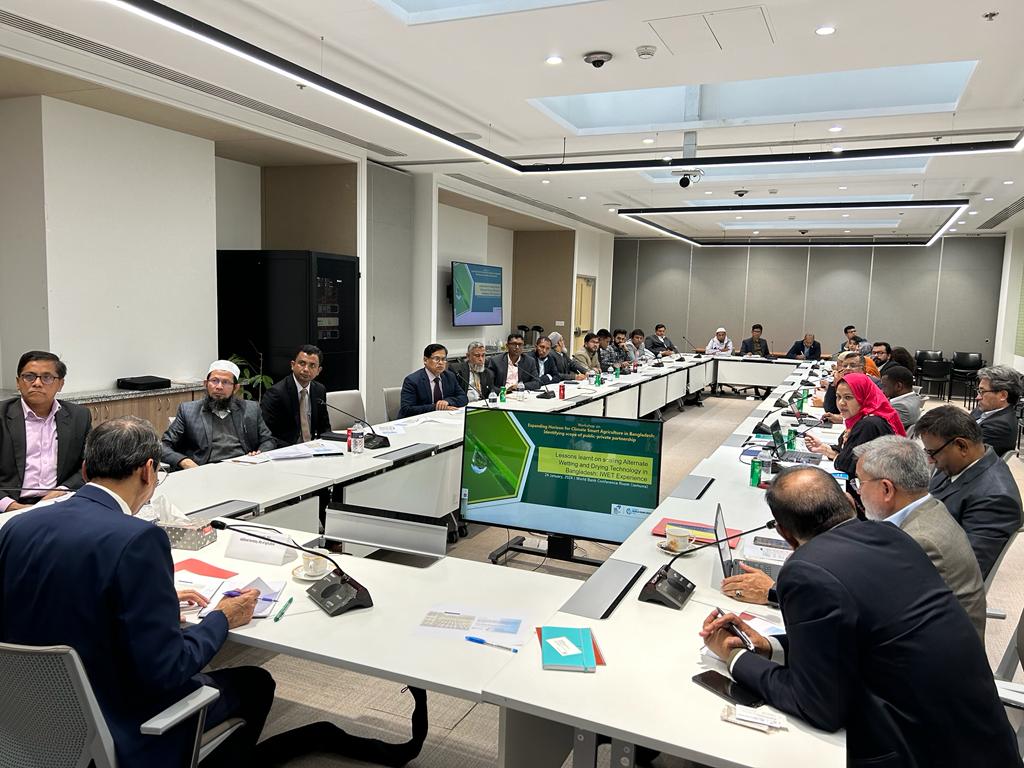Bangladesh Pioneers Climate-Smart Agriculture with Innovative Rice Production Technologies

Ranked as the world’s third-largest rice-producing country, Bangladesh faces challenges in optimizing water and input utilization in its production system. The Bangladesh Water Multistakeholder Partnership, led by the 2030 Water Resources Group (2030WRG), is spearheading efforts to scale innovative technologies for enhanced rice production management.
On January 24, 2024, a workshop titled “Expanding Horizon for Climate-Smart Agriculture in Bangladesh: Identifying Scope of Public-Private Partnership” convened to take stock of pioneering initiatives and challenges in promoting Alternative Wetting and Drying & Dry Direct Seeded Rice technologies. Attended by key stakeholders, including the Ministry of Agriculture, Department of Agricultural Extension, agribusiness companies from Bangladesh and India, IRRI, BRRI, ADB, KfW, EKN, and the World Bank, the event aimed to foster collaboration.
Chaired by the Additional Secretary of the Ministry of Agriculture, the workshop featured presentations from 2030WRG, the International Rice Research Institute, Bangladesh Rice Research Institute, Bangladesh Agricultural University, Bayer CropScience, and Jain Irrigation India.
Bangladesh Agricultural University’s 15 years of field research on Dry Direct Seeded Rice technology showcased remarkable findings on weed control, carbon emission reduction, increased yield, and water conservation. Encouraged by these results, leading private sector companies and development partners are scaling up this water-saving irrigation technology in Bangladesh.
The session concluded on a positive note, with high enthusiasm among private seed and chemical companies to collaborate closely with 2030WRG. Participants emphasized the importance of quantifying the impact, particularly in terms of carbon emission reduction, while ensuring no compromise on crop yield, and translating these benefits into financial gains for farmers.
